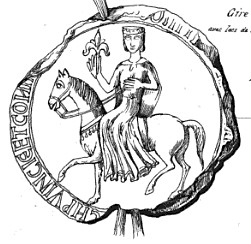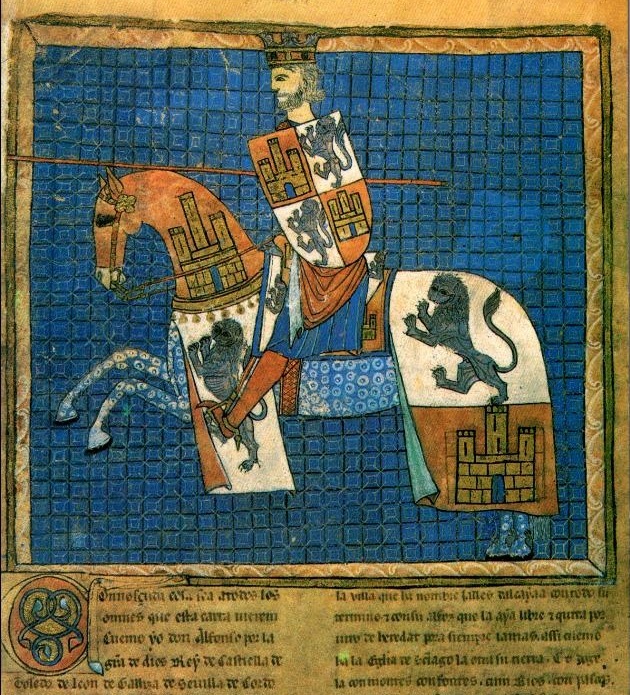|
Berchtold Von Falkenstein
Berchtold von Falkenstein (died 10 June 1272) was abbot of the Benedictine Abbey of Saint Gall from 1244 until 1272. Berchtold von Falkenstein, son of Eigelwart I from the noble family of Falkenstein was initially a monk and porter in the Benedictine Abbey of Saint Gall and succeeded Abbot Walter von Trauchburg (1239–1244) after his abdication (1244–1272).''Berchtold von Falkenstein'', in: Helvetia Sacra III/1/2 (1986), pp. 1301–1303. The tenure of abbot Berchtold was marked by economic struggles and feudal wars around the area of the monastic community of Saint Gall. Even before his tenure, the city of Wil had been occupied by the counts of Toggenburg, who had to surrender to Berchtold after five weeks of siege in early 1245.M. Buhlmann: ''Das Kloster St. Georgen im Schwarzwald und die Herren von Falkenstein.'' in: ''Vertex Alemanniae.'' H. 26, St. Georgen 2007. This would not be the last struggle with the Toggenburgs. In a dispute between the Staufian emperor and the pap ... [...More Info...] [...Related Items...] OR: [Wikipedia] [Google] [Baidu] |
Abbot
Abbot is an ecclesiastical title given to the male head of a monastery in various Western religious traditions, including Christianity. The office may also be given as an honorary title to a clergyman who is not the head of a monastery. The female equivalent is abbess. Origins The title had its origin in the monasteries of Egypt and Syria, spread through the eastern Mediterranean, and soon became accepted generally in all languages as the designation of the head of a monastery. The word is derived from the Aramaic ' meaning "father" or ', meaning "my father" (it still has this meaning in contemporary Hebrew: אבא and Aramaic: ܐܒܐ) In the Septuagint, it was written as "abbas". At first it was employed as a respectful title for any monk, but it was soon restricted by canon law to certain priestly superiors. At times it was applied to various priests, e.g. at the court of the Frankish monarchy the ' ("of the palace"') and ' ("of the camp") were chaplains to the Merovingian and ... [...More Info...] [...Related Items...] OR: [Wikipedia] [Google] [Baidu] |
Viterbo
Viterbo (; Viterbese: ; lat-med, Viterbium) is a city and ''comune'' in the Lazio region of central Italy, the capital of the province of Viterbo. It conquered and absorbed the neighboring town of Ferento (see Ferentium) in its early history. It is approximately north of GRA (Rome) on the Via Cassia, and it is surrounded by the Monti Cimini and Monti Volsini. The historic center of the city is surrounded by medieval walls, still intact, built during the 11th and 12th centuries. Entrance to the walled center of the city is through ancient gates. Apart from agriculture, the main resources of Viterbo's area are pottery, marble, and wood. The town is home to the Italian gold reserves, an important Academy of Fine Arts, the University of Tuscia, and the Italian Army's Aviation Command headquarters and training centre. It is located in a wide thermal area, attracting many tourists from the whole of central Italy. History The first report of the new city dates to the eighth century ... [...More Info...] [...Related Items...] OR: [Wikipedia] [Google] [Baidu] |
1272 Deaths
1 (one, unit, unity) is a number representing a single or the only entity. 1 is also a numerical digit and represents a single unit of counting or measurement. For example, a line segment of ''unit length'' is a line segment of length 1. In conventions of sign where zero is considered neither positive nor negative, 1 is the first and smallest positive integer. It is also sometimes considered the first of the infinite sequence of natural numbers, followed by 2, although by other definitions 1 is the second natural number, following 0. The fundamental mathematical property of 1 is to be a multiplicative identity, meaning that any number multiplied by 1 equals the same number. Most if not all properties of 1 can be deduced from this. In advanced mathematics, a multiplicative identity is often denoted 1, even if it is not a number. 1 is by convention not considered a prime number; this was not universally accepted until the mid-20th century. Additionally, 1 is the s ... [...More Info...] [...Related Items...] OR: [Wikipedia] [Google] [Baidu] |
Lichtensteig
Lichtensteig is a municipality in the ''Wahlkreis'' (constituency) of Toggenburg in the canton of St. Gallen in Switzerland. History Lichtensteig was founded by the counts of Toggenburg in the early 13th century, first mentioned in 1228 as ''Liehtunsteige''. A market is mentioned in 1374, and the right to hold markets is confirmed in 1400. A letter of privileges issued by the lords of Raron 1439 confirms the existence of a council of twelve burghers, and the joint appointment of judges by the burghers and the land lords. The mayor ( Schultheiss) was appointed by the land lord from a list of candidates compiled by the burghers. After the acquisition of the Toggenburg by the Abbey of St. Gallen in 1468, Lichtensteig became the seat of the abbot's reeve. Abbot Ulrich Rösch in 1469 confirmed the existing privileges of Lichtensteig. The council declared support of the Reformation in 1528. Lichtensteig church from this time was used both by Reformed and Catholics, while schools were ... [...More Info...] [...Related Items...] OR: [Wikipedia] [Google] [Baidu] |
Rhine Valley
), Surselva, Graubünden, Switzerland , source1_coordinates= , source1_elevation = , source2 = Rein Posteriur/Hinterrhein , source2_location = Paradies Glacier, Graubünden, Switzerland , source2_coordinates= , source2_elevation = , source_confluence = Reichenau , source_confluence_location = Tamins, Graubünden, Switzerland , source_confluence_coordinates= , source_confluence_elevation = , mouth = North Sea , mouth_location = Netherlands , mouth_coordinates = , mouth_elevation = , progression = , river_system = , basin_size = , tributaries_left = , tributaries_right = , custom_label = , custom_data = , extra = The Rhine ; french: Rhin ; nl, Rijn ; wa, Rén ; li, Rien; rm, label=Sursilvan, Rein, rm, label=Sutsilvan and Surmiran, Ragn, rm, label=Rumantsch Grischun, Vallader and Puter, Rain; it, Reno ; gsw, Rhi(n), including in ... [...More Info...] [...Related Items...] OR: [Wikipedia] [Google] [Baidu] |
Richard Of Cornwall
Richard (5 January 1209 – 2 April 1272) was an English prince who was King of the Romans from 1257 until his death in 1272. He was the second son of John, King of England, and Isabella, Countess of Angoulême. Richard was nominal Count of Poitou from 1225 to 1243, and he also held the title Earl of Cornwall from 1225. He was one of the wealthiest men in Europe and joined the Barons' Crusade, where he achieved success as a negotiator for the release of prisoners and assisted with the building of the citadel in Ascalon. Biography Early life He was born 5 January 1209 at Winchester Castle, the second son of John, King of England, and Isabella, Countess of Angoulême. He was made High Sheriff of Berkshire at age eight, was styled Count of Poitou from 1225 and in the same year, at the age of sixteen, his brother King Henry III gave him Cornwall as a birthday present, making him High Sheriff of Cornwall. Richard's revenues from Cornwall helped make him one of the wealthiest men ... [...More Info...] [...Related Items...] OR: [Wikipedia] [Google] [Baidu] |
Interregnum
An interregnum (plural interregna or interregnums) is a period of discontinuity or "gap" in a government, organization, or social order. Archetypally, it was the period of time between the reign of one monarch and the next (coming from Latin ''inter-'', "between" and ''rēgnum'', "reign" rom ''rex, rēgis'', "king", and the concepts of interregnum and regency therefore overlap. Historically, longer and heavier interregna have been typically accompanied by widespread unrest, civil and succession wars between warlords, and power vacuums filled by foreign invasions or the emergence of a new power. A failed state is usually in interregnum. The term also refers to the periods between the election of a new parliament and the establishment of a new government from that parliament in parliamentary democracies, usually ones that employ some form of proportional representation that allows small parties to elect significant numbers, requiring time for negotiations to form a government. ... [...More Info...] [...Related Items...] OR: [Wikipedia] [Google] [Baidu] |
Alfonso X Of Castile
Alfonso X (also known as the Wise, es, el Sabio; 23 November 1221 – 4 April 1284) was King of Castile, León and Galicia from 30 May 1252 until his death in 1284. During the election of 1257, a dissident faction chose him to be king of Germany on 1 April. He renounced his claim to Germany in 1275, and in creating an alliance with the Kingdom of England in 1254, his claim on the Duchy of Gascony as well. Alfonso X fostered the development of a cosmopolitan court that encouraged learning. Jews, Muslims, and Christians were encouraged to have prominent roles in his court. As a result of his encouraging the translation of works from Arabic and Latin into the vernacular of Castile, many intellectual changes took place, including the encouragement of the use of Castilian as a primary language of higher learning, science, and law. Alfonso was a prolific author of Galician poetry, such as the ''Cantigas de Santa Maria'', which are equally notable for their musical content as for ... [...More Info...] [...Related Items...] OR: [Wikipedia] [Google] [Baidu] |
Castile (historical Region)
Castile or Castille (; ) is a territory of imprecise limits located in Spain. The invention of the concept of Castile relies on the assimilation (via a metonymy) of a 19th-century determinist geographical notion, that of Castile as Spain's ("tableland core", connected to the Meseta Central) with a long-gone historical entity of diachronically variable territorial extension (the Kingdom of Castile). The proposals advocating for a particular semantic codification/closure of the concept (a '' dialogical'' construct) are connected to essentialist arguments relying on the reification of something that does not exist beyond the social action of those building Castile not only by identifiying with it as a homeland of any kind, but also ''in opposition'' to it. A hot topic concerning the concept of Castile is its relation with Spain, insofar intellectuals, politicians, writers, or historians have either endorsed, nuanced or rejected the idea of the ''maternity'' of Spain by Castile, ... [...More Info...] [...Related Items...] OR: [Wikipedia] [Google] [Baidu] |
Pope Alexander IV
Pope Alexander IV (1199 or 1185 – 25 May 1261) was head of the Catholic Church and ruler of the Papal States from 12 December 1254 to his death in 1261. Early career He was born as Rinaldo di Jenne in Jenne (now in the Province of Rome), he was, on his mother's side, a member of the family de' Conti di Segni, the counts of Segni, like Pope Innocent III and Pope Gregory IX. His uncle Gregory IX made him cardinal deacon and Protector of the Order of Franciscans in 1227, Camerlengo of the Holy Roman Church from 1227 until 1231 and Bishop of Ostia in 1231 (or 1232). He became Dean of the College of Cardinals in 1244 (or 1240). On the death of Pope Innocent IV in 1254 he was elected pope at Naples on 12 December 1254. Pontificate Alexander's pontificate was signaled by efforts to reunite the Eastern Orthodox churches with the Catholic Church, by the establishment of the Inquisition in France, by favours shown to the mendicant orders, and by an attempt to organize a crusade aga ... [...More Info...] [...Related Items...] OR: [Wikipedia] [Google] [Baidu] |
Abbey Of Saint Gall
The Abbey of Saint Gall (german: Abtei St. Gallen) is a dissolved abbey (747–1805) in a Catholic religious complex in the city of St. Gallen in Switzerland. The Carolingian-era monastery existed from 719, founded by Saint Othmar on the spot where Gallus had erected his hermitage. It became an independent principality between 9th and 13th centuries, and was for many centuries one of the chief Benedictine abbeys in Europe. The library of the Abbey is one of the oldest monastic libraries in the world. The city of St. Gallen originated as an adjoining settlement of the abbey. The abbey was secularized around 1800, and in 1848 its former church became a Cathedral. Since 1983 the abbey precinct has been a UNESCO World Heritage Site. History Foundation Around 612 Gallus, according to tradition an Irish monk and disciple and companion of Saint Columbanus, established a hermitage on the site that would become the monastery. He lived in his cell until his death in 646, and wa ... [...More Info...] [...Related Items...] OR: [Wikipedia] [Google] [Baidu] |
Reichenau Abbey
Reichenau Abbey was a Benedictine Order, Benedictine monastery on Reichenau Island (known in Latin as Augia Dives). It was founded in 724 by the itinerant Saint Pirmin, who is said to have fled Spain ahead of the Moorish invaders, with patronage that included Charles Martel, and, more locally, Count Berthold of the Ahalolfinger and the Duke of Swabia, Alemannian Duke Hnabi, Santfrid I (Nebi). Pirmin's conflict with Santfrid resulted in his leaving Reichenau in 727. Under his later successor Haito the monastery began to flourish. It gained influence in the Carolingian dynasty, under Abbot Waldo of Reichenau (740–814), by educating the Clerk (municipal official), clerks who staffed Imperial and ducal chanceries. Abbot Reginbert of Reichenau (died 846) built up the important book collection. Abbot Walahfrid Strabo (842–849), who was educated at Reichenau, was renowned as a poet and Latin scholar. The Abbey stood along a main north–south highway between Germany and Italy, where ... [...More Info...] [...Related Items...] OR: [Wikipedia] [Google] [Baidu] |







.jpg)